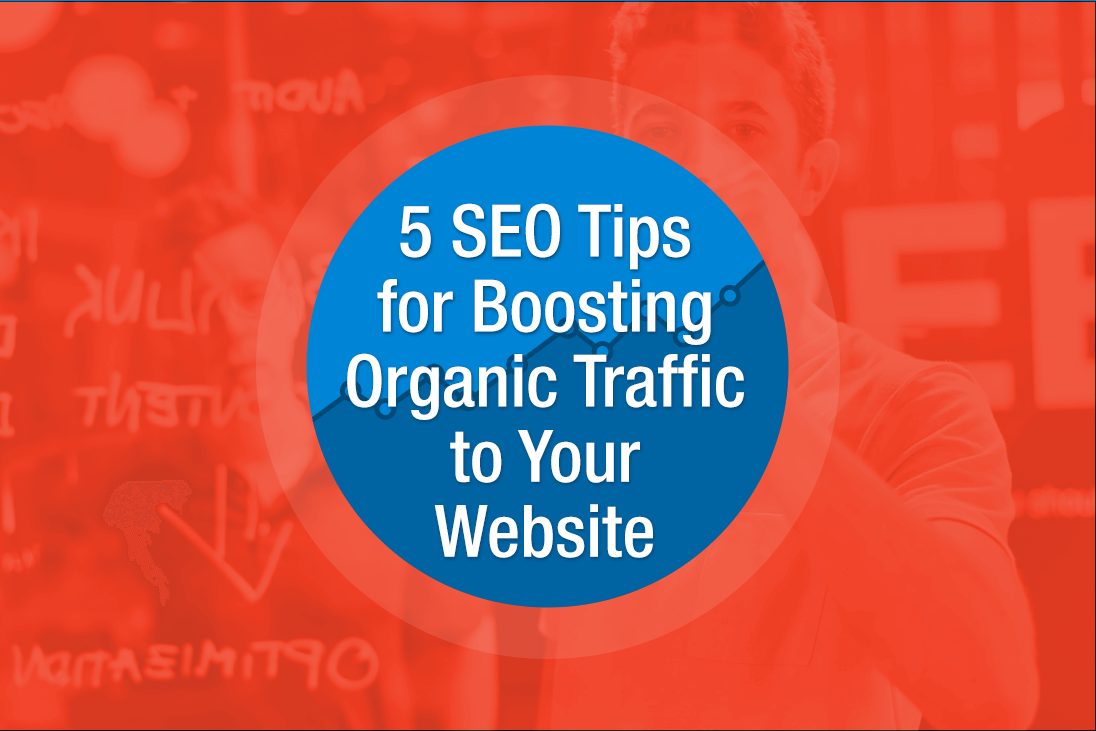5 SEO Tips for Boosting Organic Traffic to Your Website
 October 1, 2019 | By Ilfusion Team
October 1, 2019 | By Ilfusion Team
Organic website traffic is an essential element in the success of a company’s digital marketing effort. Increased web traffic results in better leads, more chances for conversion, and ultimately, a significant boost in sales. But why does organic traffic matter?
What Is Organic Traffic and Why Is It Important?
To review, organic traffic refers to web visitors coming from a search engine’s organic results, as opposed to paid traffic coming from paid ads (i.e., PPC ads).
As such, organic traffic is valuable to SEO, in that it is more targeted. This traffic comes from consumers who are already actively seeking your type of business; thus, they are more likely to convert and become paying customers.
5 SEO Tips for Boosting Organic Traffic to Your Website
As a business, it’s important to make the most out of your SEO efforts without having to resort to paid alternatives. Here are 5 SEO strategies you can implement to boost organic traffic to your business website.
1. Focus content for users, not search engines
Remember, search engine bots are only there to understand what your content is about and make sure that your content is shown to relevant search queries—they are not your target audience.
Content has always been, and will remain, king when it comes to digital marketing, which is why providing content that is valuable to your target audience is key to SEO. Here are a few tips on how to create winning content that will drive organic traffic to your website:
- Know and understand your target audience – What are their needs and challenges that you can address?
- Target long-tail keywords – What phrases would your target audience likely use when searching for your content?
- Use target keywords naturally – Do not overstuff your content with keywords; use them naturally throughout your content for easier reading.
2. Prioritize user experience
Many of Google’s recent algorithm updates revolve around improving user experience. One of their main focuses this year is mobile-first indexing. This means that Google will prioritize websites that are mobile-friendly when indexing pages and in deciding SEO rankings. To know more about how to prepare your website for Google’s mobile-first index, refer to our article here.
In addition to that, it’s also worth considering voice search optimization for your content. Several studies support that voice search is a rising trend that will soon take over organic search in the near future—after all, digital assistants and voice search make it all the more convenient for users to find content relevant to their needs. To learn more on how to optimize your content for voice search, you can read our article here.
3. Consider a regular blogging schedule
One effective way to have your website regularly indexed by search engines is to have an active business blog. You’re reading one now, after all. Business blogs can prove to be a good marketing tool, in that it both helps in establishing your brand’s credibility and also help boost your SEO.
It should be noted, however, that having a regular blogging schedule is key to having a successful business blog. Your audience should know when to expect new content from you. To determine how often you should post on your business blog, read our article here.
4. Take care of your on-page SEO
On-page SEO is a detrimental factor in driving organic traffic to your website, but it’s often overlooked by many marketers. These elements refer to your keywords, meta descriptions, ALT texts, internal links, h1 tags and headers, and mobile-friendliness, among many others.
All these elements come into play in helping search engine bots understand your content better, subsequently boosting your visibility in organic search results. To learn more about the key on-page SEO elements you should be checking for better content optimization, see our checklist here.
5. Make an effort for off-page SEO
While on-page SEO is focused on elements within your website, off-page SEO, as the term suggests, are those that you can perform outside the boundaries of your website. Two of the most essential off-page SEO activities are link building and social media marketing (or social sharing/brand mentions).
Off-page SEO helps in building your website’s credibility by letting search engine bots know that other websites—including users on social media—are talking about your content. Not only does off-page SEO drive referral traffic to your website, it also boosts organic search rankings in a way since search engines like Google use this as one of its many ranking signals. To know more about how to boost social media sharing of your website content, refer to our article here.
Wrapping It Up
Driving organic traffic to your website is but one of the many things involved in SEO. If you need help in boosting your search rankings, or if you’re interested to have Ilfusion help you with any of your SEO efforts, give us a call at 888-420-5115, or send us an email to cr******@******on.com.
Filed in: Articles

